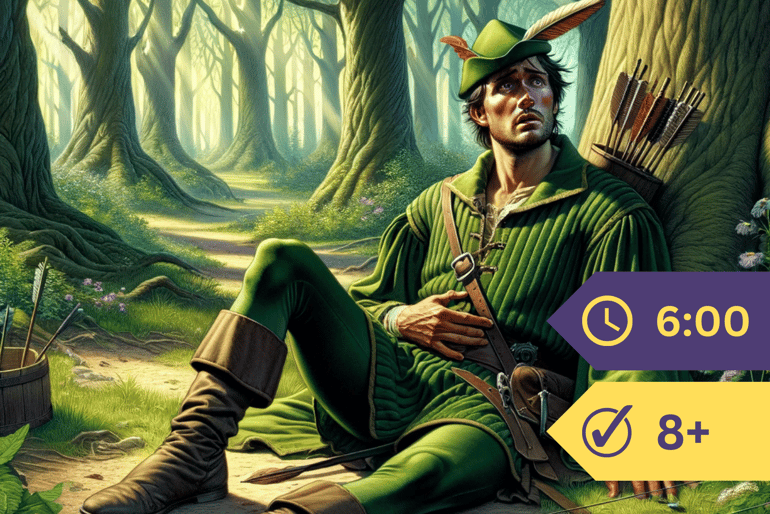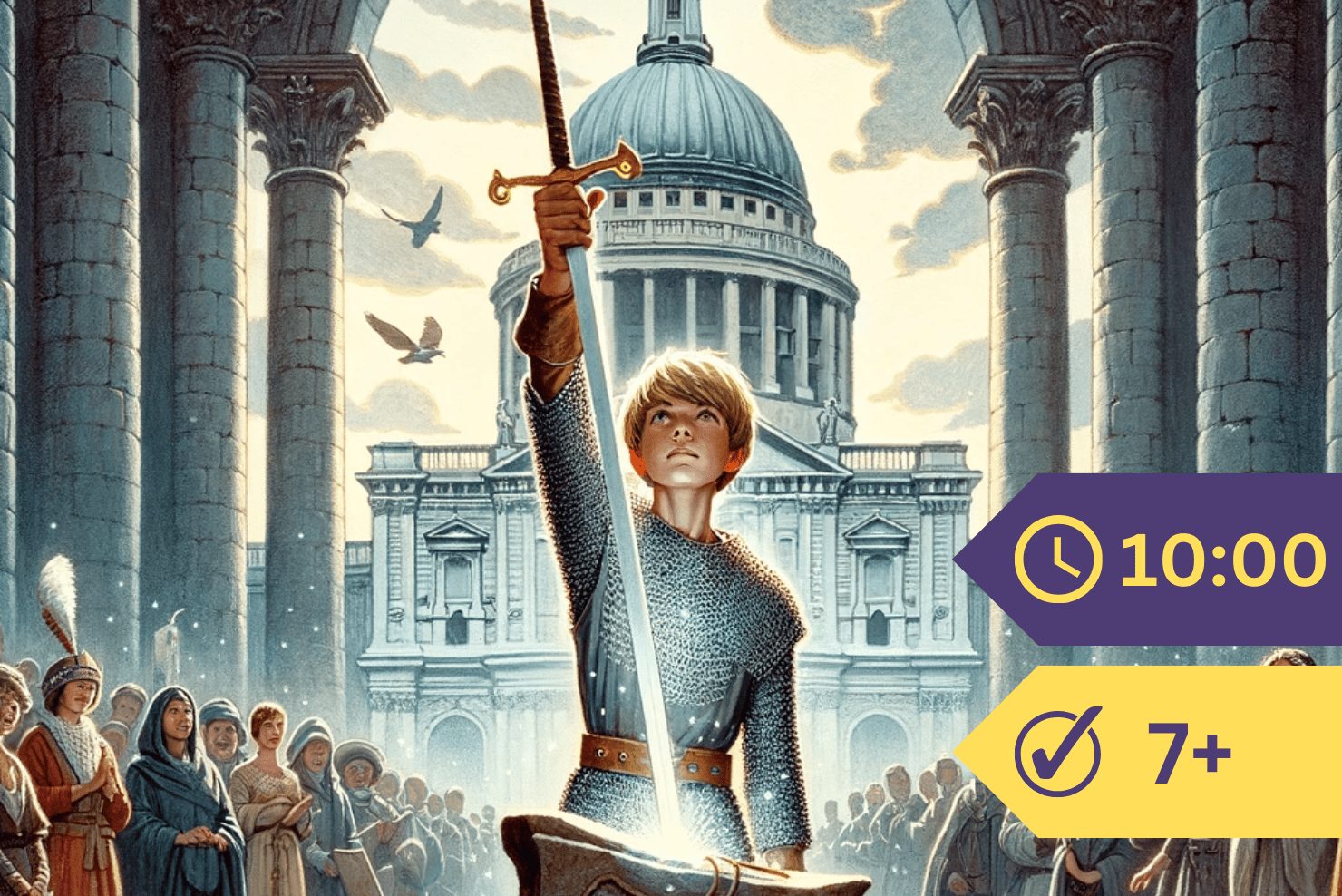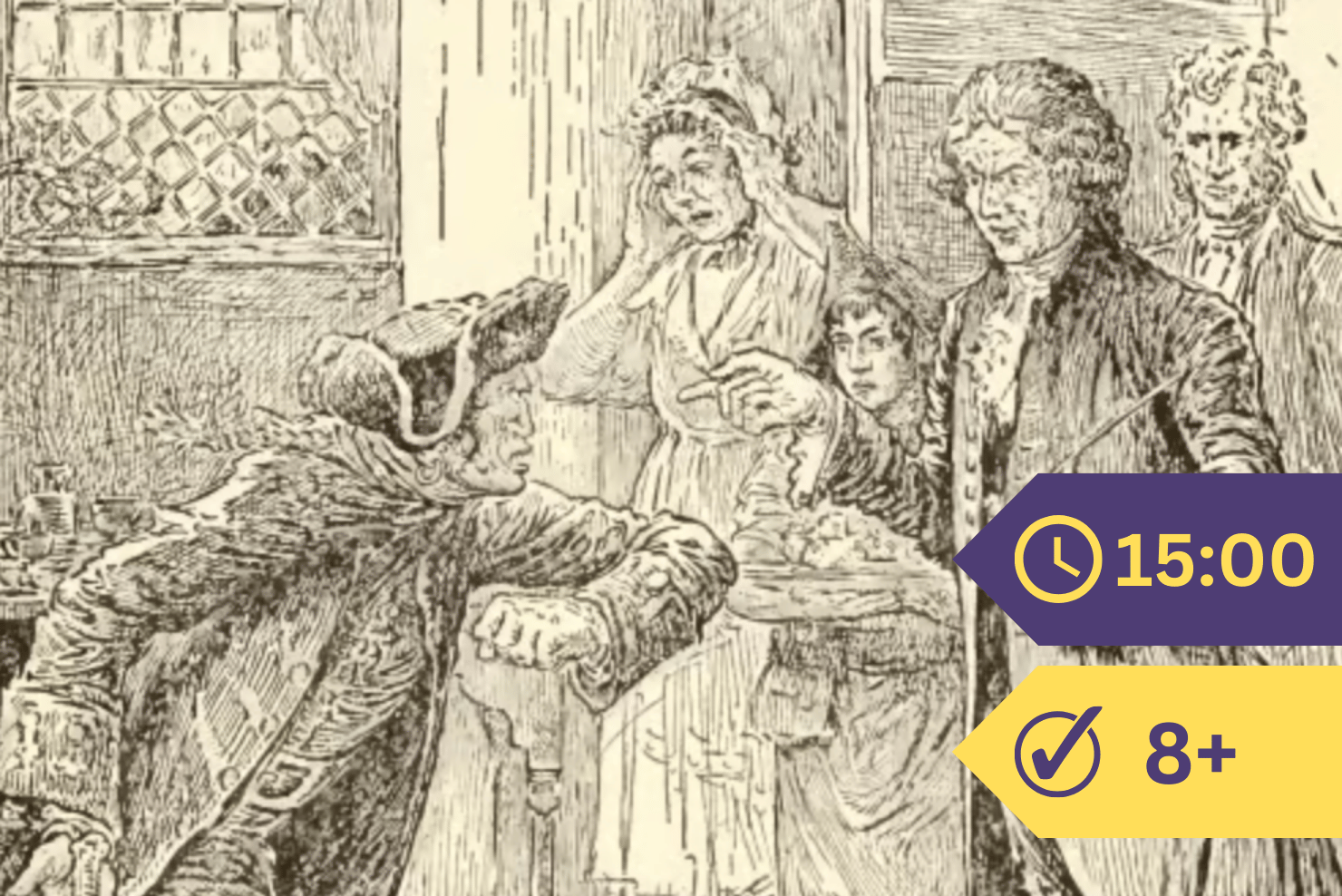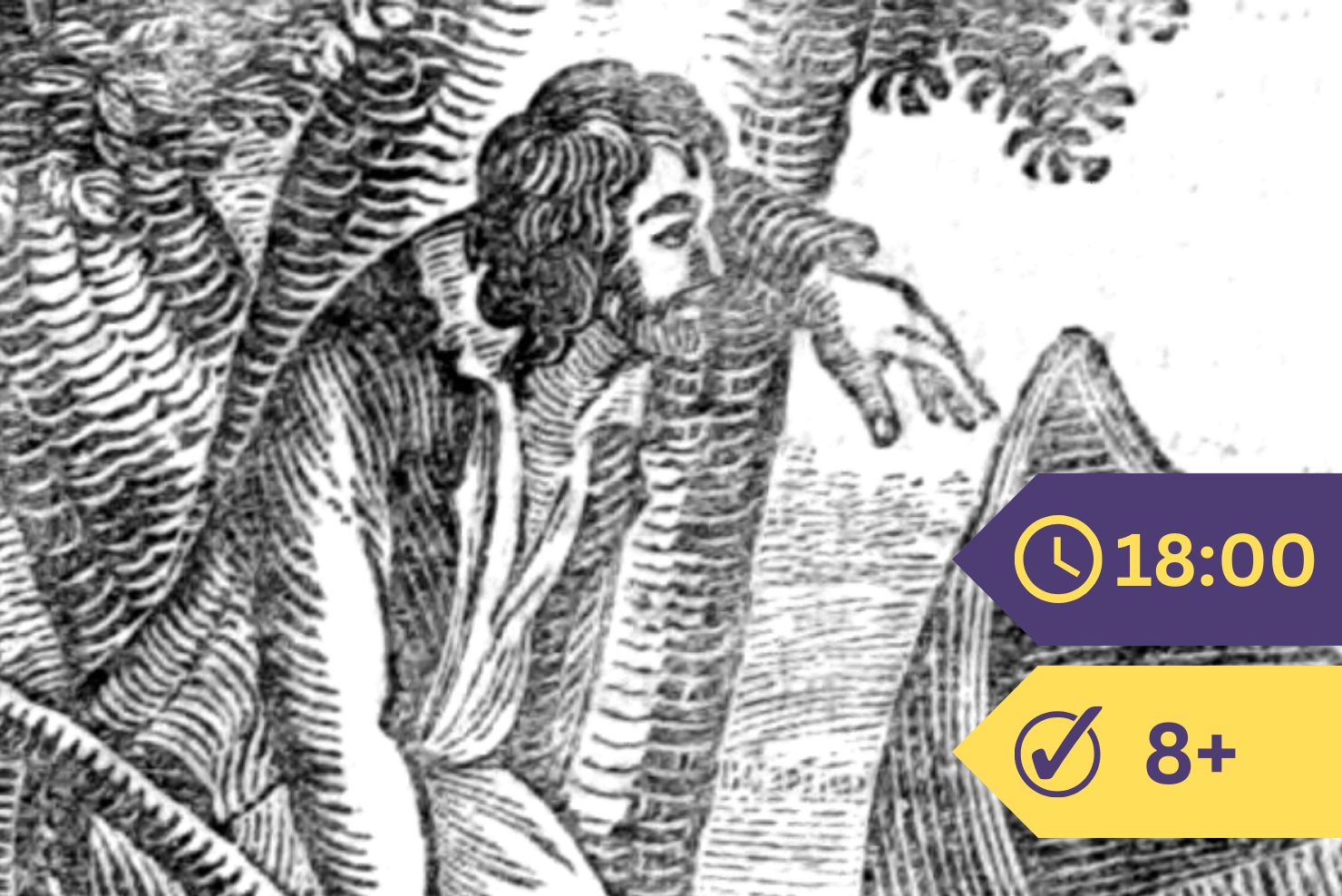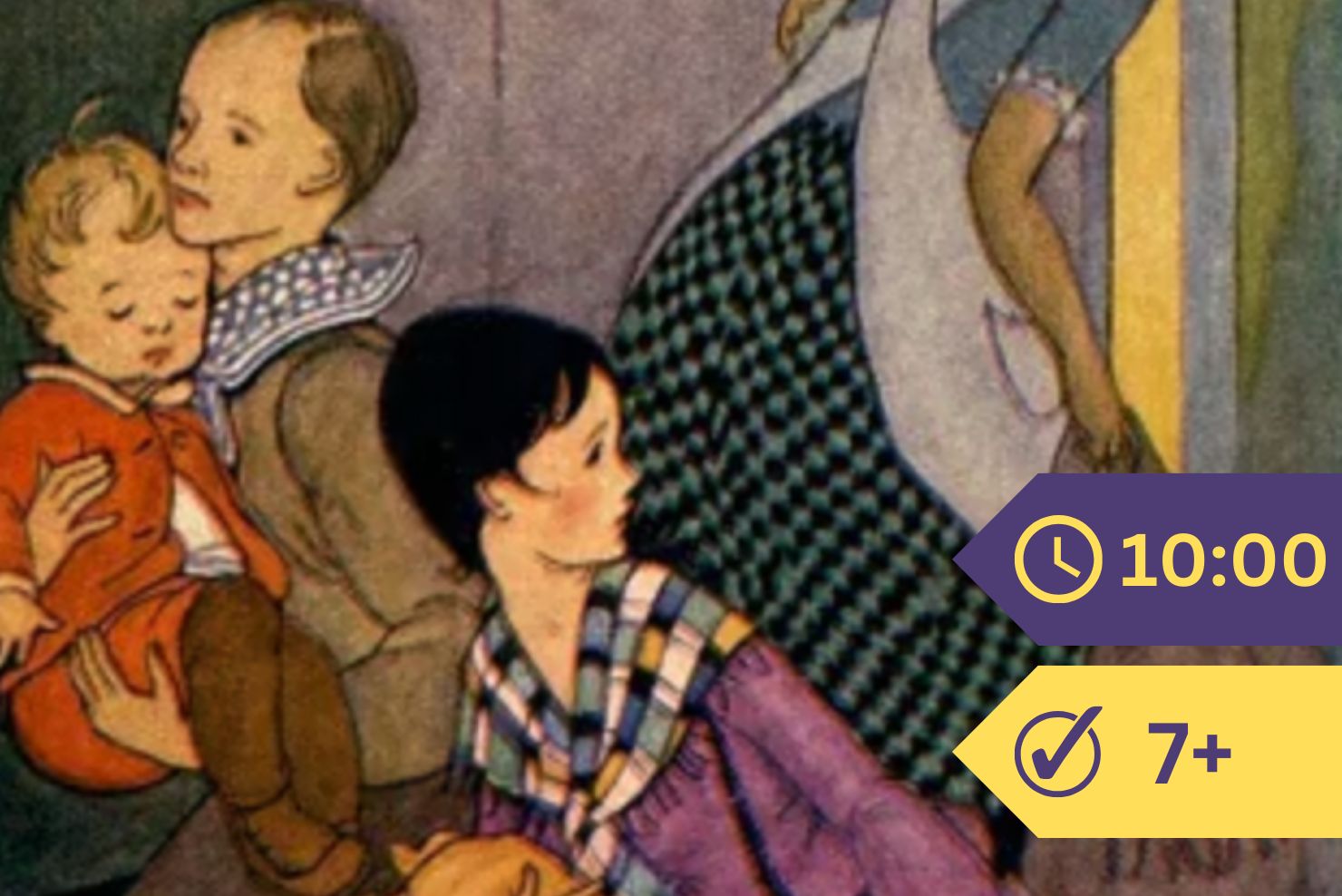But there came a day at last when Robin Hood had to bid farewell to the greenwood where he and his merry men had spent so many happy years. Word was sent to the king that the outlaws waxed more and more insolent to his nobles and all those in authority, and that unless their pride was quelled the land would be overrun.
A council of state was therefore called, to consider what was best to be done. Having consulted a whole summer’s day, at length it was agreed that some one should be sent to seize Robin Hood and bring him before the king.
A trusty and most worthy knight, called Sir William, was chosen for this task.
“Go you hence to that insolent outlaw, Robin Hood,” said the king, “and bid him surrender himself without more ado, or he and all his crew shall suffer. Take a hundred valiant bowmen, all chosen men of might, skilled in their art, and clad in glittering armour.”
“My sovereign liege, it shall be done,” said the knight. “I’ll venture my blood against Robin Hood, and bring him alive or dead.”
A hundred men were straightway chosen, as proper men as were ever seen, and on midsummer day they marched forth to conquer the bold outlaw.
With long yew-bows and shining spears they marched in pomp and pride, and they never halted nor delayed till they came to the forest.
“Tarry here, and make ready your bows, that in case of need you may follow me,” said the knight to his archers. “And look you observe my call. I will go first, in person, with the letters of our good king, duly signed and sealed, and if Robin Hood will surrender we need not draw a string.”
The knight wandered about the forest, till at length he came to the tent of Robin Hood. He greeted the outlaw, and showed him the king’s letter, whereupon Robin sprang to his feet and stood on guard.
“They would have me surrender, then, and lie at their mercy?” quoth Robin. “Tell them from me that shall never be while I have seven score of good men.”
Sir William, who was a bold and hardy knight, made an attempt to seize Robin then and there, but Robin was too quick to be caught, and bade him forbear such tricks. Then he set his horn to his mouth, and blew a blast or two; the knight did the same.
Instantly from all sides archers came running, some for Robin Hood, some for the knight.
Sir William drew up his men with care, and placed them in battle array. Robin Hood was no whit behind with his yeomen. The fray was stern and bloody. The archers on both sides bent their bows, and arrows flew in clouds. In the very first flight the gallant knight, Sir William, was slain; but nevertheless the fight went on with fury, and lasted from morning until almost noon. They fought till both parties were spent, and only ceased when neither side had strength to go on. Those of the king’s archers that still remained went back to London with right good will, and Robin Hood’s men retreated to the depths of the greenwood.
But Robin Hood’s last fight was fought, and of all the arrows that ever he shot, there was but one yet to fly. As he left the field of battle he was taken ill, and he felt his strength fail, and the fever rise in his veins.
His life was ebbing fast away, and now he was too weak to go on.
Then he remembered his little bugle-horn, which still hung at his side, and setting it to his mouth, he blew once, twice, and again—a low, weak blast.
Away in the greenwood, as he sat under a tree, Little John heard the well-known call, but so faint and feeble was the sound it struck like ice to his heart.
“I fear my master is near dead, he blows so wearily!”
Never after hart or hind ran Little John as he ran that day to answer his master’s dying call. He raced like the wind till he came to where Robin was, and fell on his knee before him.
“Give me my bent bow in my hand,” said Robin Hood, “and I will let fly a broad arrow, and where this arrow is taken up, there shall you dig my grave.
“Lay me a green sod under my head,
And another at my feet;
And lay my bent bow at my side,
Which was my music sweet;
And make my grave of gravel and green,
Which is most right and meet.”
So Robin Hood drew his bow for the last time, and there where the arrow fell, under a clump of the greenwood trees, they dug the grave as he had said, and buried him.


